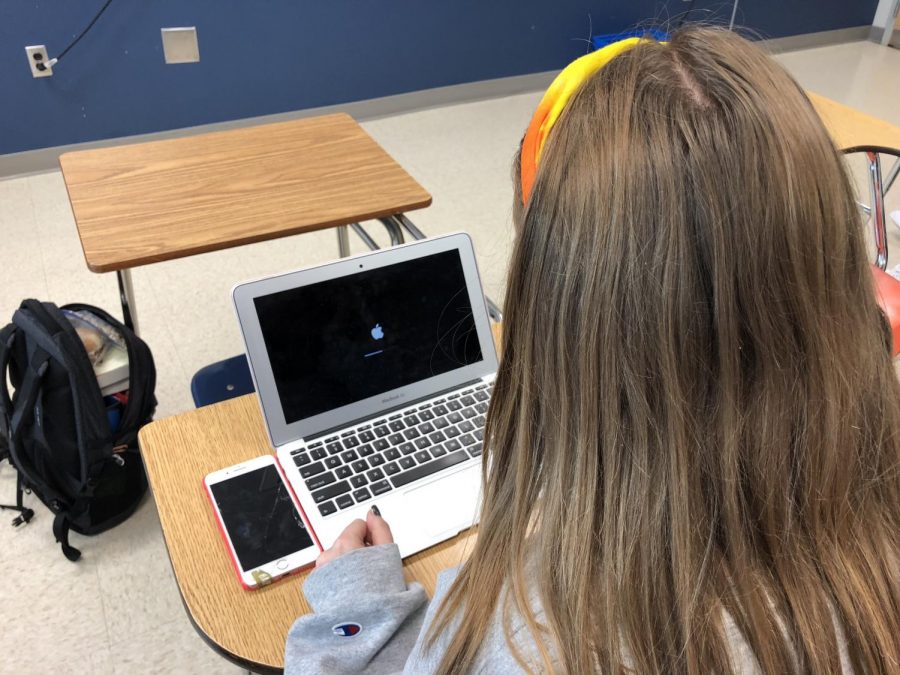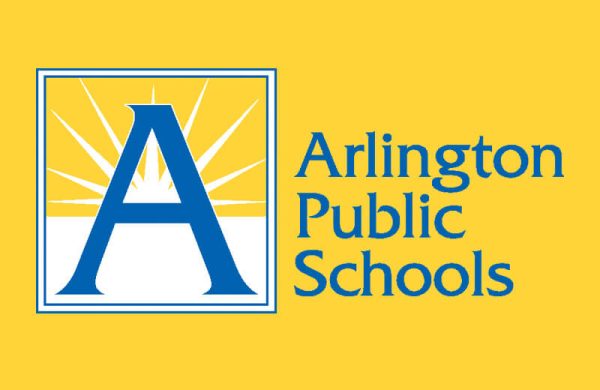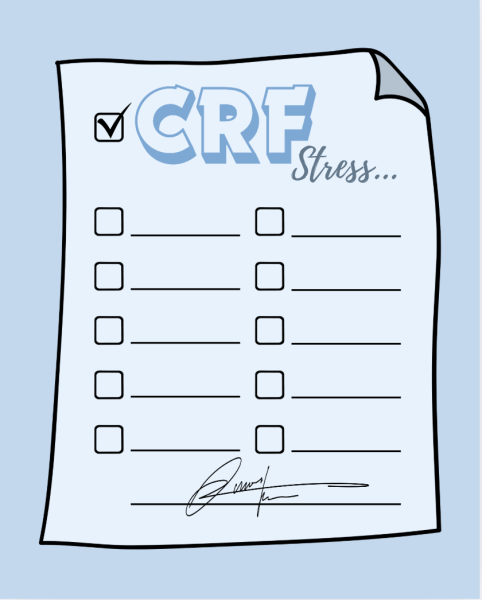Turn it off and on again
APS faces new problems with school technology
Students at the school have been vocal about the problems they face with their county-issued computers. While Arlington Public Schools (APS) administrators and staff have been working to find solutions, these problems are just the latest in a long series. Students have been dealing with problems regarding the school-supplied technology since the reimaging process at the end of the 2016-17 school year, when GlobalProtect was first installed. These continuing issues make the MacBook Airs, bought by the county to aid APS in the education of its students, problematic in the schools.
Many of the complaints are directed toward GlobalProtect and AirWatch, two of the programs installed on the computers. The former has been unpopular since it was first put on the computers more than a year ago. The programs are used by APS to regulate the websites and content that students can access on their devices.
“GlobalProtect and AirWatch are both products that help an organization manage their mobile computers and smart mobile devices,” John Nelson, Senior Executive of the Northern Virginia-based cybersecurity company Caveonix, said. “They are more than just network segmentation solutions – for example, they can also control what new applications can be installed on a protected device.”
According to the Children’s Internet Protection Act, as well as sections § 22.1-70.2 and § 18.2-390 of the Code of Virginia, if schools provide technology to students, they are legally required to filter and control the content that students have access to. When finding solutions to problems with the technology, APS has to ensure their solution does not allow students access to restricted content.
“It is the mission and intent of APS that the provided student devices be reliable and useful at all times, both inside and outside the schools,” Mr. Raj Adusumilli, Assistant Superintendent for Information Services, said. “The relationship between safety, reliability and usefulness is dynamic, and maintaining the proper balance is a continual challenge.”
At the start of the 2018-19 school year, students’ computers would work slowly and restart at random. This made completing online assignments difficult and meant that students risked losing unsaved work at any point. The problem was not limited to a few computers, either; the devices of many students at the school would restart with little to no warning. This was eventually fixed by APS, which pushed a solution out to the laptops in early September.
“The problems we experienced at the beginning of the school year were related to the changes in behavior of newer versions of macOS and AirWatch,” Mr. Adusumilli said. “AirWatch needed to be upgraded after the school year, so the behavior of installing applications on a Mac changed dramatically.”
When looking for solutions to the problems faced by students, APS often works with vendors and looks at many options in order to find a fix.
“We also continuously consider improvements to the services and software APS provides,” Mr. Adusumilli said. “We consider solutions ranging from configuration changes to complete replacement of a product that are targeted to be more efficient and sustainable.”
Students did not only face the problems that were unanticipated by APS, such as the rebooting. They have also taken issue with the new restrictions on the computers. During the previous school year, students were able to do things on their laptops like change the wallpaper or connect to a printer. Now, these settings are locked down. Students are no longer able to print from their laptops, and must access files from another computer or find a faculty member willing to print it for them in order to obtain a paper copy.
“For me, the printer issue is really frustrating,” junior Athena Butler-Christodoulou said. “In the past, I usually was able to connect to my home printer and could print papers whenever I needed them. Now, I need to use the computer we have at home and sometimes it isn’t available when I need it. It has made a quick and convenient process take longer and more effort.”
When working on assignments, students have also found that some websites have been blocked that they have needed to access for academic reasons. Assigning work online has become typical in the school. In order to complete such assignments, students would have to use an alternative device like a family computer or phone to reach the content.
“I think that one problem that isn’t really being addressed by the school is [that] their constant censorship of certain websites is actually really problematic, because there’s certain things that I can’t access that my teachers want me to access or certain websites that are blocked kind of arbitrarily,” senior Neeka Samimi said.
The difficulties with the computers have not only impacted students. Teachers, who have gotten used to being able to depend on the use of the devices for class activities, have had to re-evaluate their plans in the classroom to accommodate the technical difficulties.
“Since APS is expecting teachers to use Canvas for lesson delivery and communication with students, this has presented the challenge of how students who don’t have working computers can use Canvas or other programs and apps,” physics teacher Mr. Christopher Cook said. “Some students have chosen to use their smartphones and under these circumstances it simply made sense to relax the normal classroom restrictions on cell phone use. In some cases, I have asked students to work with a classmate who has a working computer and in some cases I have extended deadlines.”
The county has had trouble getting specific and constructive comments, however, in an organized manner. This can contribute to the time it takes to find solutions for some of the technological problems in the county.
“Another part of that challenge is getting feedback from students on the problems they face,” Mr. Adusumilli said. “There are a lot of students, and very few staff and the problems students face are often specific to their situation and not systemic.”
The difficulties with the computers also make the school’s constant usage of technology evident. They have caused students to have trouble completing and turning in assignments, as well as making it harder for teachers to utilize the technology in their classrooms.
“There’s no doubt it has been frustrating for everyone who has been impacted,” Mr. Cook said. “It’s a reminder of how dependent we have become on technology in our daily lives.”













